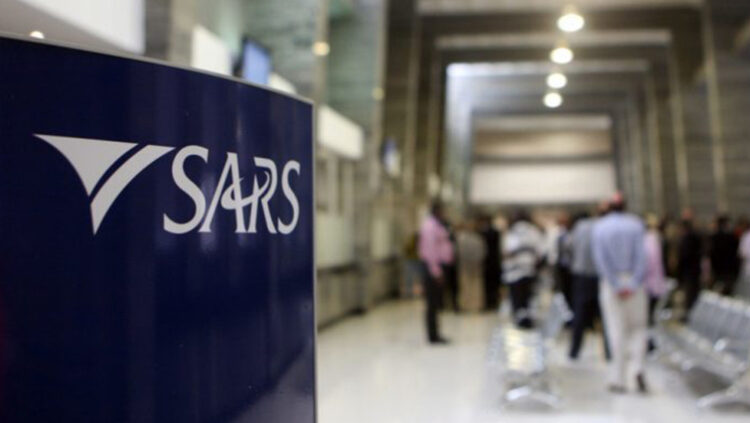…launch of the End-to-End Time Release Study (TRS) report
Moroke Sekoboto
THE Revenue Services Lesotho (RSL) and the South African Revenue Service (SARS) have reaffirmed their commitment to enhancing border efficiency.
This by advancing coordinated border management and fostering regional integration under the framework of the World Trade Organisation (WTO) Trade Facilitation Agreement.
Speaking at the official launch of the joint End-to-End Time Release Study (TRS) Report on Thursday at Victory Hall, RSL Commissioner of Client Services and Head of Customs, Rakokoana Makoa, said the TRS exercise reflects not only their commitment to service excellence but also the spirit of partnership shaping the future of border management in the region.
Mr Makoa said the launch was particularly significant for the RSL as it aligns with their 2024–2027 Strategy, Lesokoana. Central to this strategy, he said, is the pursuit of operational efficiency—ensuring that systems, processes, and services are modern, agile, and responsive to the needs of traders and travellers. The TRS, he added, provides the empirical foundation to realise that ambition.
He also expressed appreciation to His Majesty’s Revenue and Customs (HMRC) of the United Kingdom and the Competitiveness and Financial Inclusion Project (CAFI) for their financial and institutional support, which made the study possible.
“This joint Time Release Study is more than a measurement exercise—it is a symbol of what can be achieved when nations and institutions embrace cooperation,” Mr Makoa said.
“The findings will provide us with performance benchmarks essential for improving end-to-end border processes. They offer a shared understanding of how to make our borders smarter, faster, and more efficient.”
He added that the initiative affirms Lesotho and South Africa’s commitment to the WTO Trade Facilitation Agreement and reinforces ongoing work among SACU member states to advance coordinated border management and procedural harmonisation across the region.
Mr Makoa further noted that through this study, Lesotho and South Africa demonstrate that partnership is the cornerstone of sustainable reform. He commended the Heads of Border Agencies (HOBA) for leading Lesotho’s border management reforms “with diligence and foresight,” adding that through HOBA, Lesotho has institutionalised cooperation as a pillar of border governance.
“This achievement is evidenced by the Inter-Agency Standard Regulation on Coordinated Border Management, which aligns national reforms with our regional and global obligations. This regulation is not just a policy instrument—it is a statement of intent that every border agency plays a role in ensuring a unified and service-oriented border experience.”
He said the regulation ensures that reforms are not isolated events but part of a long-term agenda to transform border operations in line with international best practices.
“As RSL, we reaffirm our unwavering commitment to working collaboratively with our domestic, regional, and international partners.”
Mr Makoa emphasised that the true value of the Time Release Study lies in how its findings are used to bring meaningful change.
“We will use the evidence to strengthen coordination among border agencies, simplify clearance procedures, and improve service delivery for traders, travellers, and transporters,” he said.
He highlighted the importance of partnerships with the private sector, particularly clearing agents and trading communities, to cultivate a border environment that is efficient, predictable, transparent, and inclusive.
“The Time Release Study also positions Lesotho and South Africa to advance toward an Integrated Border Management framework and, ultimately, a One-Stop Border Post (OSBP) model,” he said. “This is a crucial step toward reducing trade costs, stimulating investment, and creating an environment where businesses of all sizes can flourish.”
He noted that the benefits extend beyond customs administration, reaching every sector of the economy—from SMMEs to major exporters—ultimately improving livelihoods.
“Efficient borders are not just trade mechanisms; they are catalysts for national development, regional competitiveness, and shared prosperity.”
Mr Makoa said the launch marked not the end of a project but “the beginning of a new era of cooperation” between Lesotho and South Africa.
“Let us continue building on the trust, professionalism, and partnership that this Time Release Study has fostered. Working together, we will transform our borders from points of delay into gateways of opportunity,” he said.
He reaffirmed RSL’s commitment to “leading with integrity, collaborating with purpose, and delivering border management services that uphold the aspirations of our nation and region.”
SARS Director of Customs Border Operations, Port of Entry and Customs and Excise Compliance, Beyers Theron, said the TRS is a strategic, internationally recognised tool to measure the actual time required to clear goods and complete cross-border formalities—from their first arrival until final release—to identify bottlenecks and take remedial action to improve border efficiency.
Mr Theron said TRS is vital not only for identifying the root causes of border delays and supporting the transition from traditional to technology-driven borders but also as a data-based foundation for improving entire trade corridors.
“TRS also gives practical effect to the commitments made by Commissioner Generals of SACU Tax and Customs Administrations to drive the trade facilitation agenda among SACU member states,” Mr Theron said.
He explained that Coordinated Border Management (CBM) aims to mobilise pre-arrival electronic data, resources, functions, processes, agreements, and legislation around a shared vision of efficient border processing across all regulatory agencies.
“TRS and the facilitation benefits it informs create measurable value for economic operators,” he said.
“They are necessary for the sustainability and growth of regional trade corridors, help identify and limit the effects of bureaucracy and inefficiencies on legitimate trade, and support the regional economic benefits envisaged by the African Continental Free Trade Agreement (AfCFTA).”

